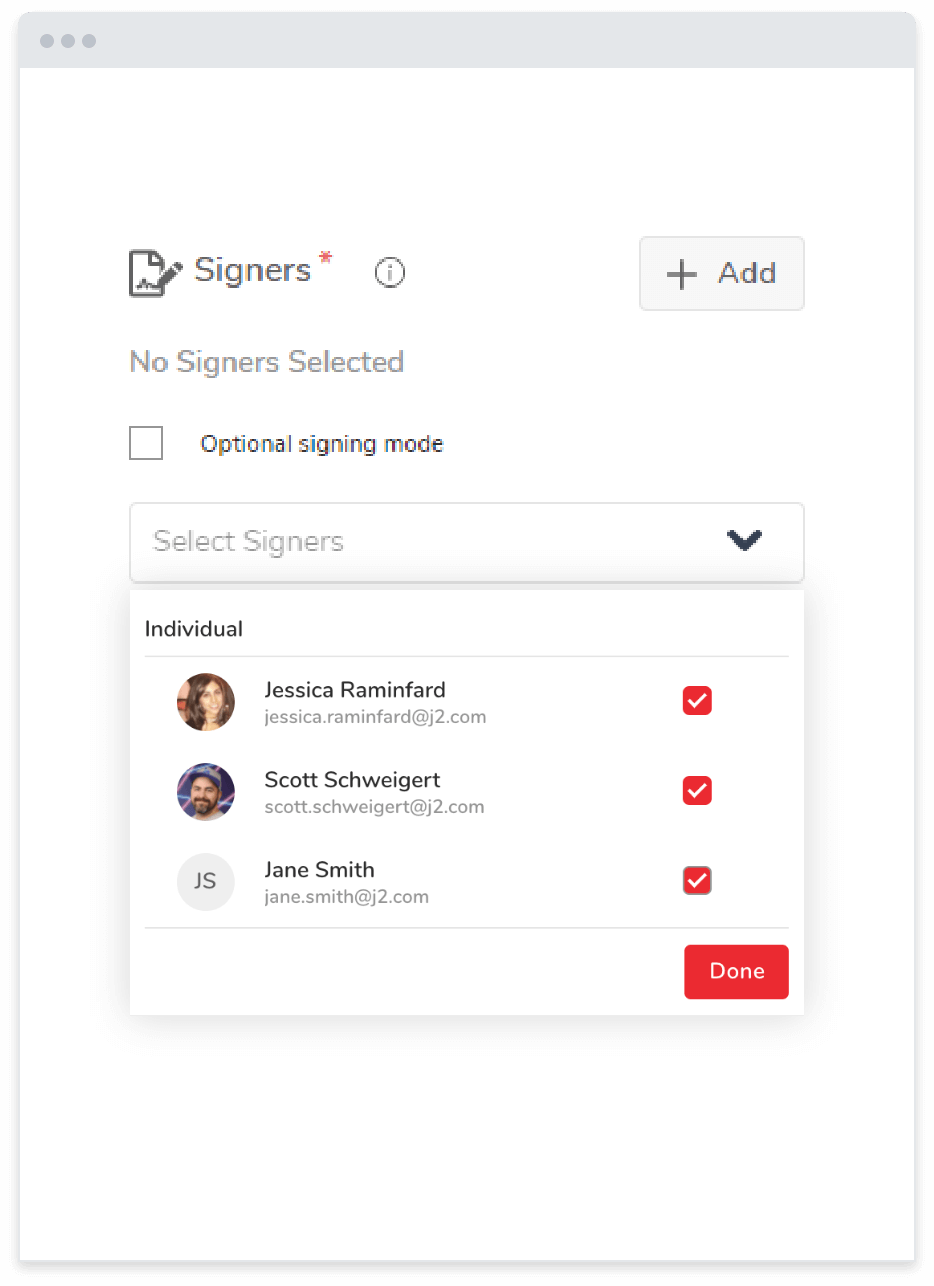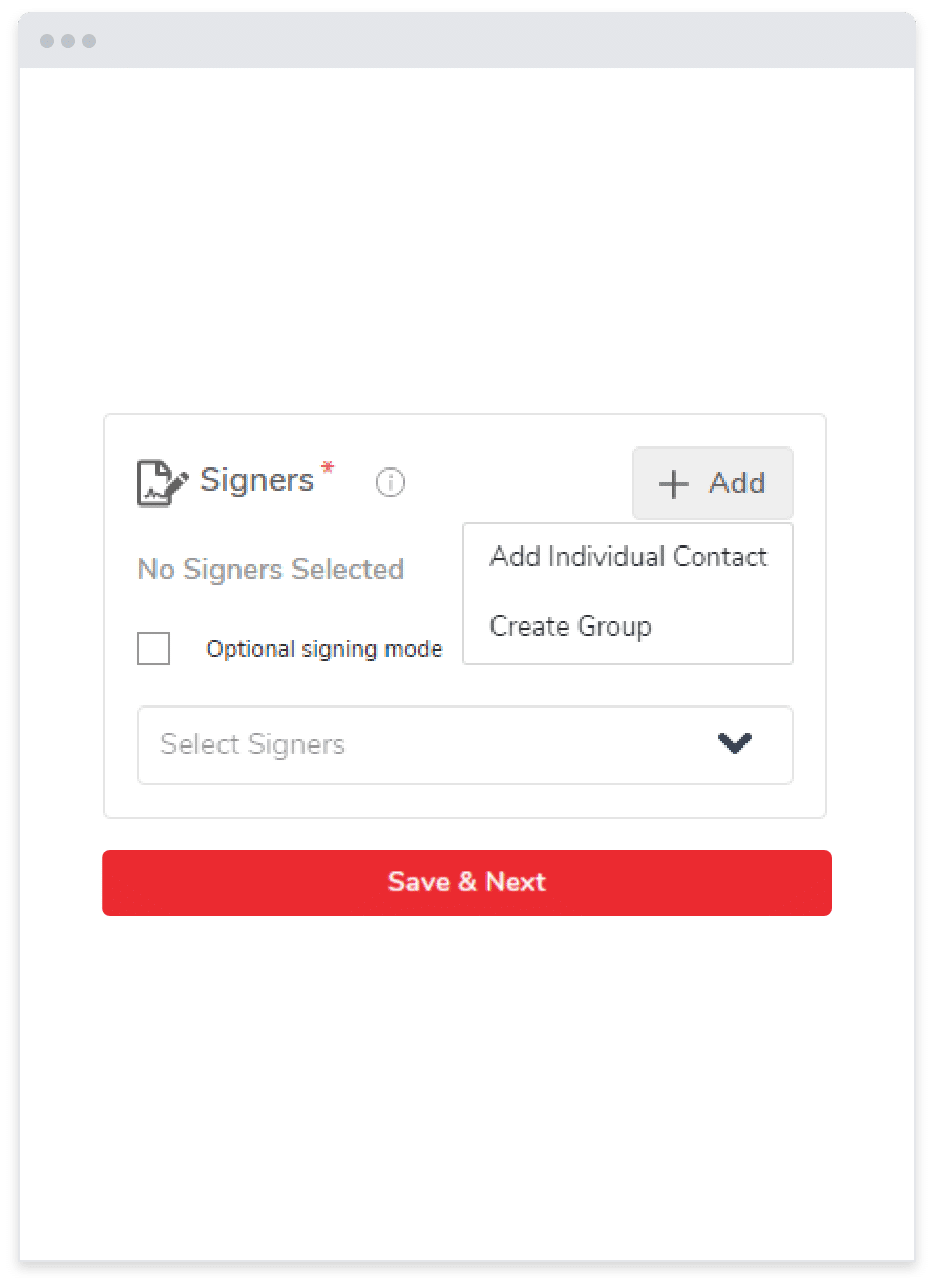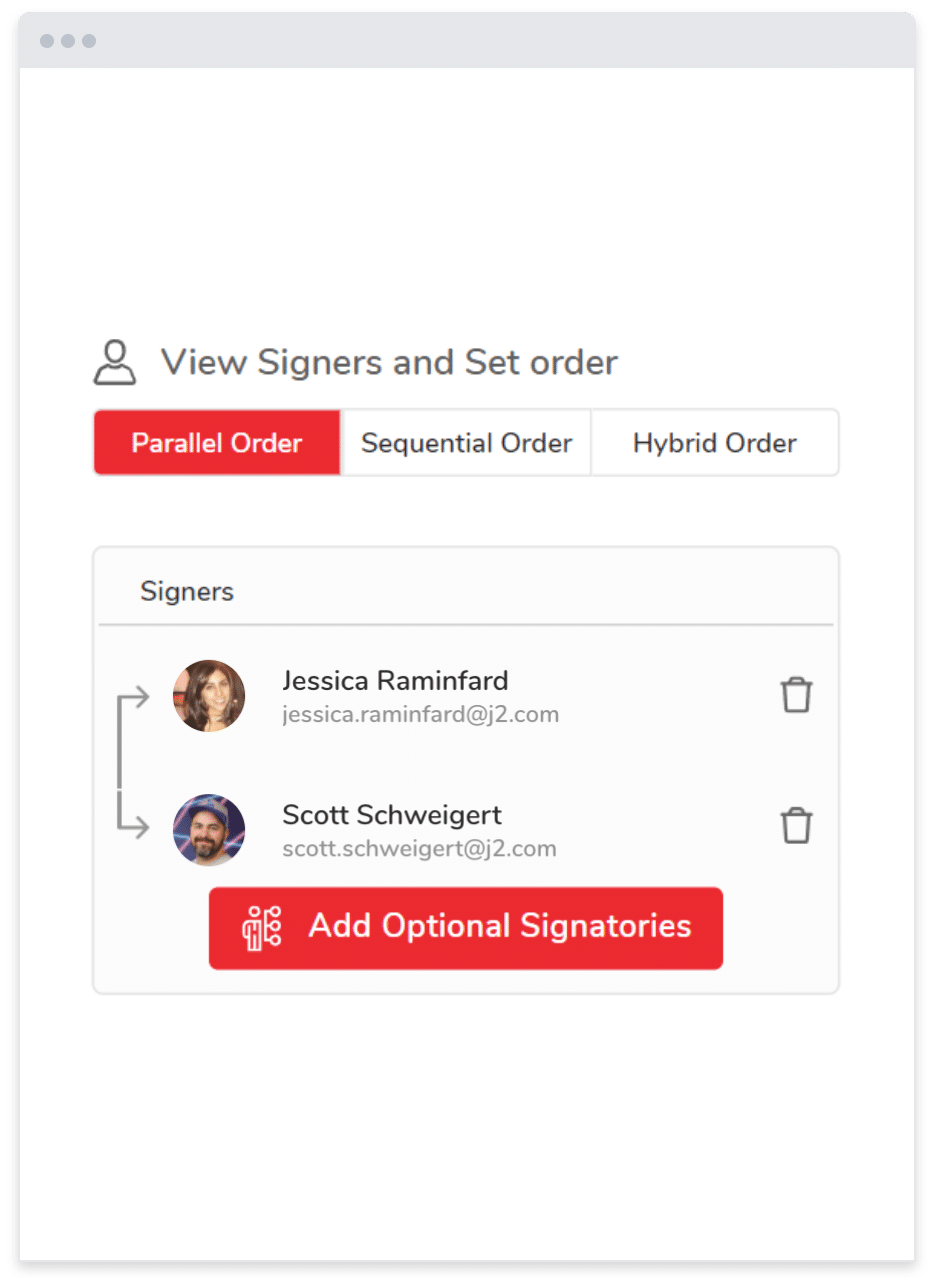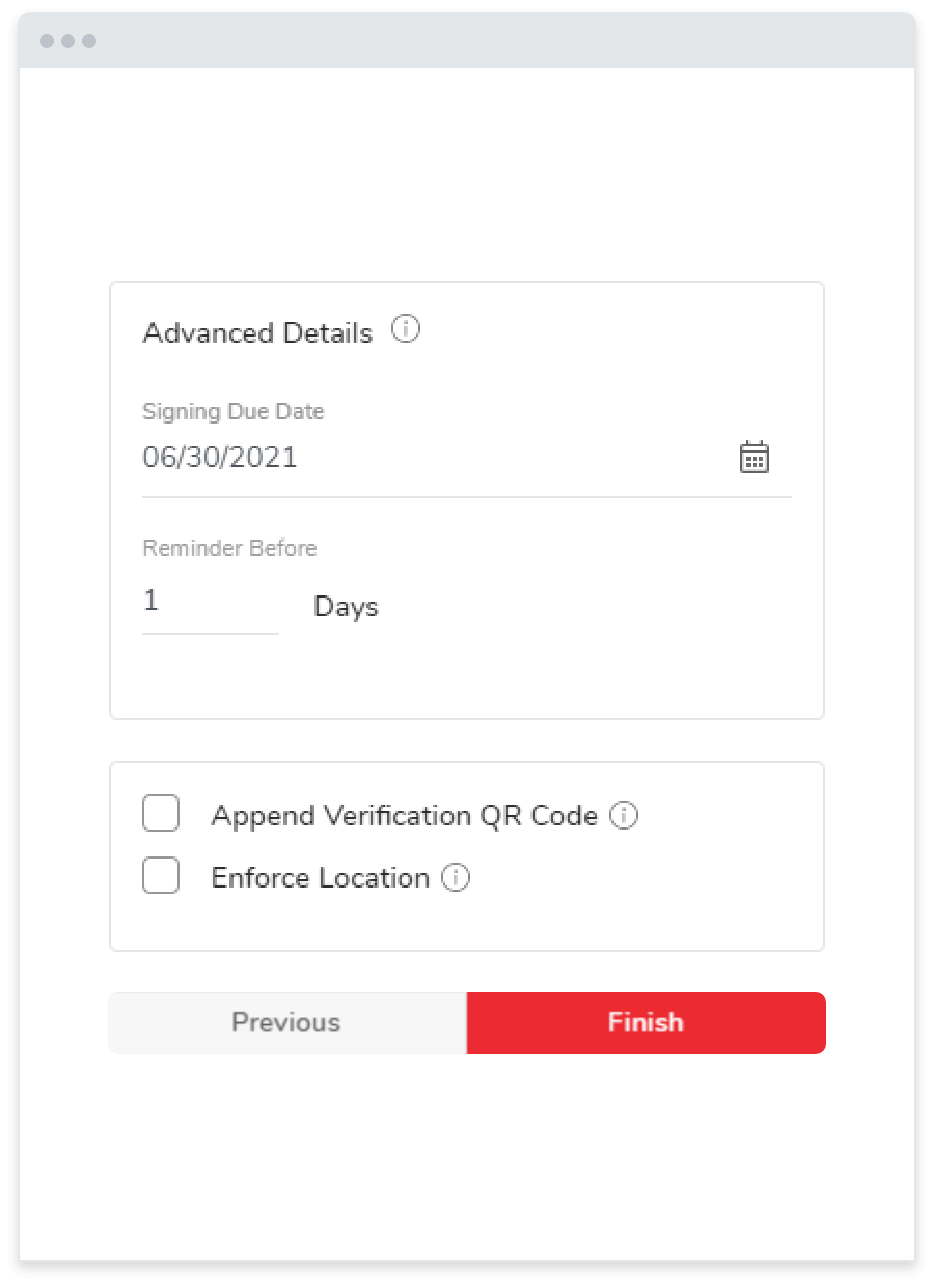Features / Signing Order
Set Document Signing Order for Quick Electronic Signatures
Setting the signing order for your documents is fast, easy, and protected with jSign®.
Simple Signing Order Settings for Online Signatures
Anyone who has to deal with contracts knows how exhausting paperwork can be.
Now signing documents that require multiple electronic signatures is easier than ever before with jSign®’s signing order feature.
What is a Signing Order?
The signing order of a document is simply the order in which a document must be signed for it to be approved by an organization.
When collecting electronic signatures that need to be done in sequential order, meaning one after the other, there used to be a lot of work involved.
If you’ve been through this before, you know that it can be a real pain.
Without jSign, you would have to email a contract to the first signer, have them print, sign, scan and send it back, then email it to the second signer, and repeat until all signatures have been gathered.
The bottom line is that over months and years, these kinds of processes rob us of hours, days, and even weeks from our lives. Time we could have spent with family, friends, or being more productive at work.
But jSign offers an easier way to set the signing order and collect electronic signatures for your important documents. It saves you time, boosts your productivity, and lets you focus on business activities that really matter.
Parallel & Sequential Order: What Do They Mean?
You have two options when selecting the signing order with jSign: parallel and sequential order.
Parallel Order
Parallel order means that your document can be signed by recipients in any order or at the same time. It doesn’t matter who signs the document first or last, as long as it’s signed by everyone.
Sequential Order
Signing a document in sequential order means that one party has to sign the document before the next party provides their electronic signature. This is common in organizations with many managers and departments.
Control the Signing Order with jSign
jSign is the easiest way to electronically sign documents and set your signing order online.
Our blockchain-based technology makes signing, sending, tracking, and collecting electronic signatures effortless and fast.
How to Set the Signing Order
Setting the signing order for your electronic signatures with jSign is as simple as dragging and dropping your recipients into order.
Once you’ve finished uploading your contract and supporting documents, simply:
As always, jSign’s support team is standing by to help you if you ever get stuck.
Enhance your Workflow with Signing Order for Electronic Signatures
jSign is being used to simplify the electronic signing process by companies all over the globe.
Choose the right plan for you and begin using your electronic signature to sign online documents today!
Get Started with jSign
Ready to get started?
jSign is the leading electronic signature solution for organizations that require signing orders.
We offer flexible pricing plans with unmatched features and capabilities, including:
Take a look at our plans to find the e-signature solution with signing order support that’s right for you!
Electronic Signatures: Frequently Asked Questions
New to electronic signatures?
Here’s everything you need to know about setting the signing order with e-signatures.
Absolutely! Electronic signatures are safely used to sign a wide variety of document types. Documents are safeguarded by jSign’s modern document protection features to ensure signature authenticity and maintain legal compliance. E-signatures are regularly used for medical documents, legal contracts, sales contracts, invoices, and more.
No. Your document recipients do not need a jSign account in order to sign a document with their electronic signature. When you need signatures, your signees can use jSign as a guest to complete the document. Once signing is completed, the document will be returned to you.
jSign is built on blockchain as an extra layer of protection. Because the blockchain technology that we use is decentralized (meaning there is no central server for hackers to tamper with), it would be much more complicated to create fraudulent documents signed through our platform.
Yes. Signatures created with jSign are legally binding electronic signatures. jSign is compliant with all major e-signature laws, including the Uniform Electronic Transactions Act (UETA) and the Electronic Signatures in Global and National Commerce Act (ESIGN Act).
The ESIGN act defines an electronic signature as “an electronic sound, symbol, or process attached to or logically associated with a contract or other record and executed or adopted by a person with the intent to sign the record.” This definition covers typed, drawn, and uploaded electronic signatures as acceptable ways to sign contracts.



